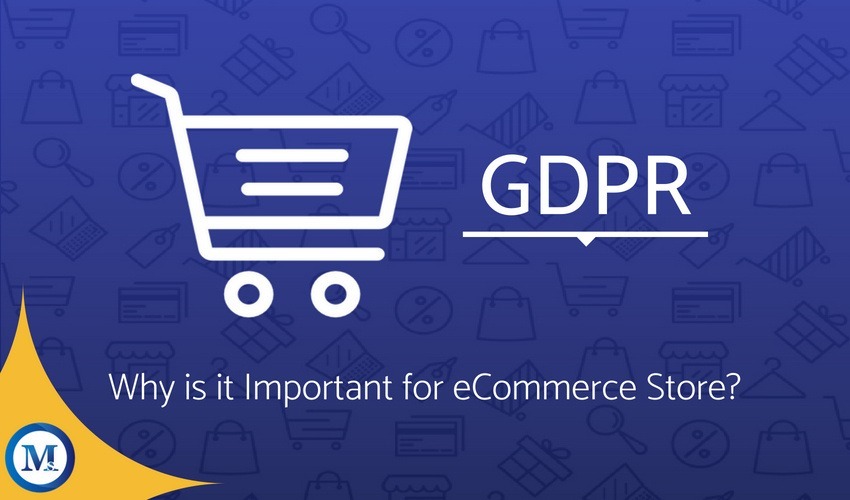
When it comes to the security and protection of individual customer data of e-commerce stores, there should be optimum priority and care. This requires a comprehensive approach to data security with clear-cut regulations and protocols.
The “General Data Protection Regulations (GDPR)“, which will be effective from the 25th of May this year, is a bold step in this direction.
Receiving assurance of support from top administrative authorities, like the European Union, is a significant development. Consequently, other countries worldwide will likely adopt similar approaches soon.
Table of Contents
What is GDPR?
GDPR refers to the General Data Protection Regulations, which is the latest rendition of the privacy and security laws concerning data breaches.
This new set of regulations is expected to reduce the instances of data breaches both in frequency and scale.
The new regulatory protocol actively defines boundaries. Specifically, it outlines who can legally deal with customer data, when, and how. Furthermore, it sets limits on such interaction.
These regulations not only set clear limits on customer data interaction. Furthermore, they include provisions for significant financial penalties if non-compliance is detected.
The GDPR states clear penalties for non-compliant businesses and apps. Specifically, fines can reach up to 4% of a business’s annual revenue. Alternatively, the penalty can be €20 million. The greater of these two amounts will apply.
Can it affect the eCommerce store? If yes, how can it be?
Obviously, this set of regulations has far-reaching implications for any e-commerce store.
Among many other things, this new set of regulations will give a makeshift to the compliance criterion for any app to be included in your eCommerce store.
This new set of rules and compliance laws offers several benefits. First, it will boost the trustworthiness and credibility of e-commerce stores. Furthermore, it will attract new customers to trusted e-commerce brands. Finally, it will reduce the operational hazards associated with maintaining compliance with third-party apps for stores.
You can make people feel safe while browsing products, sharing their personal information, and buying products.
That is really a standout advantage we can expect from these regulations.
One e-commerce store, by simply being GDPR compliant, can boost its credibility to a great extent.
How will GDPR ensure data protection?
The new GDPR regulations will govern data collection, processing, storage, and disclosure. Specifically, these rules apply to any individual’s personal data within the European Union.
Some of the key objectives of this new regulatory framework include the following.
- First, it enhances the transparency of data interaction. Then, boost the accountability of organizations. These organizations are responsible for interacting with individuals’ personal data.
- Regulating the situations, time duration, security protocols, and ground rules for lawful interaction with the data.
- Regulating the transfer of personal user data is crucial. This applies to countries outside the European Union. Moreover, other organizations have their own standard protocols to ensure data security and privacy.
- Establishing and legally upholding the rights and ownership of an individual over their personal data.
- These regulations originated in the EU. However, they also apply to companies outside of the European Union.
Data compliance after GDPR and its implications for eCommerce stores
Among the businesses that are most exposed to the digital data of the customer, e-commerce comes at the top.
Naturally, the wide-ranging implications of the GDPR will be greater in e-commerce stores than in most other business niches.
E-commerce stores deal with customers’ personal data in several ways. To do this, they use a variety of third-party apps and tools.
New compliance regulations for data security will now enforce a fresh approach. Specifically, these rules impact third-party apps that actively interact with customer data.
This new set of laws will change business dynamics. Specifically, they govern app compliance when interacting with customers’ personal data. Ultimately, these regulations will have a positive impact on trustworthiness.
When handling customer personal data like email addresses, shipping addresses, phone numbers, and purchase history, every stakeholder and participant app must follow stringent compliance norms.
If a platform hosts an e-commerce app, other apps may also process its data. Therefore, the merchant, the data processor platform, and the other apps will all be accountable for data security and safety.
Read More:
- How To Start Your Own eCommerce Store Without Investment?
- Why Choose Magento For eCommerce Store Setup?
- Build a WordPress eCommerce Store with Shopify!
AboutChetan Sheladiya
Related Posts
Why Migrate WooCommerce To Magento eCommerce Store?
Table of Contents Why Migrate WooCommerce to Magento?Read More: Why Migrate WooCommerce to Magento? As the eCommerce...
What is a Multi-Vendor eCommerce Platform & Why this is Important? Let’s Get The Insights
A multi-vendor eCommerce platform is an online marketplace. Here, many sellers can register, create their profiles, and add...
